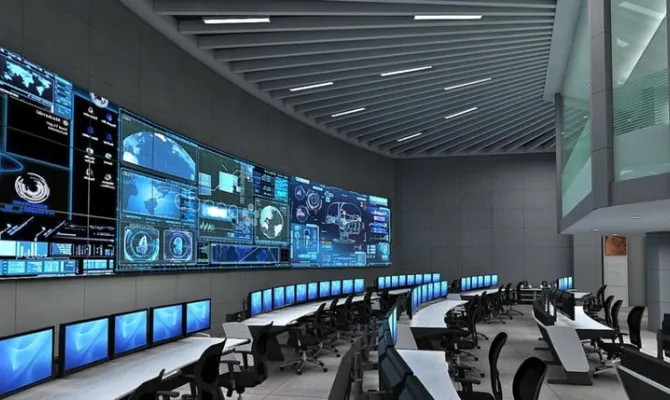In the dynamic landscape of financial markets, the need for precision, speed, and real-time decision-making is paramount. Financial institutions in the UAE are increasingly turning to high-tech trading control rooms to navigate this fast-paced environment. This blog explores the critical role of these control rooms in facilitating efficient trading operations and ensuring accurate decision-making.
The Role of Trading Control Rooms
Trading control rooms are sophisticated command centers designed to support the operations of financial trading desks. They provide a centralized environment where traders can monitor market conditions, execute trades, and manage risk effectively.
Key functions of trading control rooms include:
– Real-Time Data Monitoring: Traders have access to live market data, allowing them to react swiftly to changes in price, volume, and market sentiment.
– Integrated Communication Systems: Advanced communication tools facilitate immediate collaboration among traders, analysts, and risk management teams, ensuring that everyone is aligned on strategy.
– Risk Management Tools: Control rooms are equipped with advanced analytics and risk assessment tools that help traders identify potential risks and make informed decisions.
Enhancing Decision-Making Speed and Accuracy
In the fast-moving financial markets of the UAE, the ability to make quick, accurate decisions can significantly impact profitability. Trading control rooms are equipped with technologies that enhance decision-making processes:
– Real-Time Analytics: Advanced analytics tools provide traders with insights derived from large volumes of data, helping them identify trends and opportunities as they emerge.
– Automated Trading Systems: Many control rooms incorporate algorithmic trading systems that can execute trades automatically based on predefined criteria, significantly increasing speed and efficiency.
– Visual Dashboards: Intuitive dashboards display critical market data and key performance indicators (KPIs), allowing traders to absorb information quickly and make informed decisions on the fly.
Supporting Compliance and Regulatory Requirements
The financial sector is heavily regulated, and compliance with these regulations is crucial for maintaining market integrity. Trading control rooms play a vital role in ensuring adherence to compliance standards:
– Audit Trails: Control rooms maintain detailed records of all trading activities, providing a transparent audit trail that can be reviewed for compliance purposes.
– Real-Time Monitoring for Compliance: Compliance teams can monitor trading activities in real-time, quickly identifying and addressing any potential regulatory breaches.
Facilitating Collaboration and Communication
Effective communication is essential for successful trading operations. High-tech trading control rooms foster collaboration among various teams:
– Unified Communication Platforms: These platforms enable instant messaging, video conferencing, and file sharing, allowing teams to work together seamlessly, regardless of location.
– Team-Based Workstations: Control rooms are designed to support team-based trading strategies, allowing traders and analysts to collaborate closely and share insights.
The Impact of Technology on Trading Control Rooms
Technology is at the heart of modern trading control rooms. Some key technological advancements include:
– Artificial Intelligence (AI): AI algorithms can analyze vast datasets, identify patterns, and provide predictive insights, empowering traders to make better-informed decisions.
– Machine Learning: This technology enhances trading strategies by adapting to market changes and improving the accuracy of predictions over time.
– Blockchain Technology: Increasingly being explored for its potential to streamline settlement processes and enhance transparency in trading transactions.
Future Trends in Trading Control Rooms
As the financial landscape evolves, trading control rooms in the UAE will continue to adapt and innovate. Future trends may include:
– Increased Automation: Greater reliance on automation and AI-driven decision-making tools to enhance efficiency and reduce human error.
– Integration with Other Financial Technologies: Collaboration with fintech solutions to create a more cohesive trading ecosystem.
– Focus on Cybersecurity: As trading becomes increasingly digitized, the emphasis on cybersecurity measures to protect sensitive data and trading activities will grow.
Conclusion
High-tech trading control rooms are indispensable for financial institutions in the UAE, enabling them to thrive in a fast-paced market environment. By facilitating real-time decision-making, enhancing collaboration, and ensuring compliance, these control rooms play a vital role in driving the success of trading operations. As technology continues to advance, the evolution of trading control rooms will further empower traders, ensuring that they remain at the forefront of the financial landscape.


